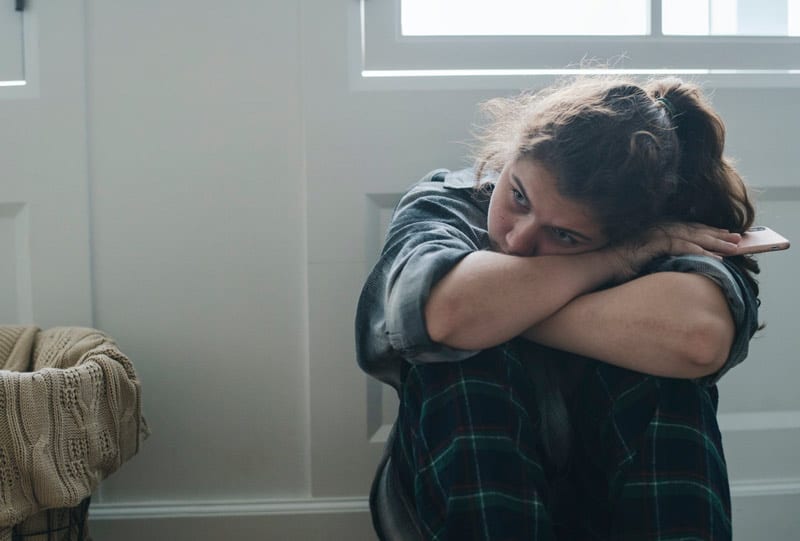This week marks National Suicide Prevention Week, a week when we are urged to learn more about suicide and how each of us can take steps to prevent deaths by suicide in our communities and our country. This year it comes after months of battling the COVID-19 pandemic, and as many of us face the stress of family members returning to school, college, or work under uncertain conditions. With so much on our minds and with a pandemic threatening our health, is it really important to talk about suicide? The answer is yes.
The conditions created by the COVID-19 crisis make it more important than ever to understand the factors that put people at risk for suicide, to learn the warning signs, and to know how and where to seek help for yourself or others. Surveys conducted by The Centers for Disease Control (CDC) in June 2020 found elevated levels of depression, anxiety, substance use, trauma, and stressor-related disorders related to the pandemic and frightening levels of suicidal ideation. Young adults, people of color, essential workers, and unpaid caregivers were at the highest risk of these adverse mental health conditions.
These findings are not surprising. COVID-19 has increased our isolation and disrupted routines that supported wellbeing. Many people are out of work and struggling to pay bills. Others have been struggling to manage childcare and distance learning while balancing work obligations from home. Our essential workers layered on the additional stress of health risks to the usual work stresses. We may be experiencing grief from not being able to comfort a sick loved one or properly memorialize a loved one we have lost. We mourn the loss of weddings, graduations, and proms that couldn’t be held. We profoundly miss human connection: an impromptu hug, a night out with friends, the chance to sit around a lunch table with our colleagues. All of this takes a mental and emotional toll, and all of it increases the risk for suicide.
So what can we do? First, it’s important for every one of us to educate ourselves about the risk factors and warning signs of suicide, many of which are increasing because of the pandemic. Second, we should all know where to find help. All of us should keep the Suicide Prevention Lifeline and text line numbers in our cell phones, so we have them readily available if we need them ourselves or we need to share them with a family member or friend in distress. Third, stay connected. A Zoom call or phone call may have to do for now, but continue to reach out to family and friends for your own wellbeing, as well as theirs. It’s especially important to check in with family and friends who may struggle with depression and anxiety, are using or abusing substances to cope, or who have suffered losses of any kind. Fourth, if you are worried that a friend or loved one may be at risk for suicide, don’t be afraid to ask the question – “Are you thinking about hurting yourself?” It is a common myth that asking friends or loved ones if they are having thoughts of suicide will plant the idea in their heads. Those who struggle with suicidal ideation confirm that the opposite is true. Asking extends a life preserver to them that they desperately want and can be their pathway to treatment and recovery.
I firmly believe we can do a better job of preventing suicide if we work together to educate ourselves, raise awareness and reduce stigma, and advocate for research, policies, and practices that lead to better identification of those at risk and safer and more effective treatments. If we join together to do these things, I know we can save lives.
If you or someone you know experiences mental health issues, it is important to seek help from a qualified professional. Our Resource Specialist can help you find expert mental health resources to recover in your community. Contact us now for more information on this free service to our users.
About the Author: Nancy von Euler became an advocate for suicide prevention after losing her daughter, Emma, to suicide 11 years ago. She has served as a field advocate for the American Foundation for Suicide Prevention (AFSP) and served on the Board of the Southern Connecticut Chapter of AFSP for three years. Nancy currently serves as the Executive Director of Horizons at New Canaan Country School and lives in Southport, Connecticut, with her husband Peter and daughter Sarah.
The von Euler family established the Emma von Euler Memorial Scholarship at the High School Scholarship Foundation of Fairfield to support students to attend college and raise awareness about suicide. For more information, or to contribute, go to http://fairfieldscholarshipfoundation.org.
Image by www.rawpixel.com
The opinions and views expressed in any guest blog post do not necessarily reflect those of www.rtor.org or its sponsor, Laurel House, Inc. The author and www.rtor.org have no affiliations with any products or services mentioned in the article or linked to therein. Guest Authors may have affiliations to products mentioned or linked to in their author bios only.





